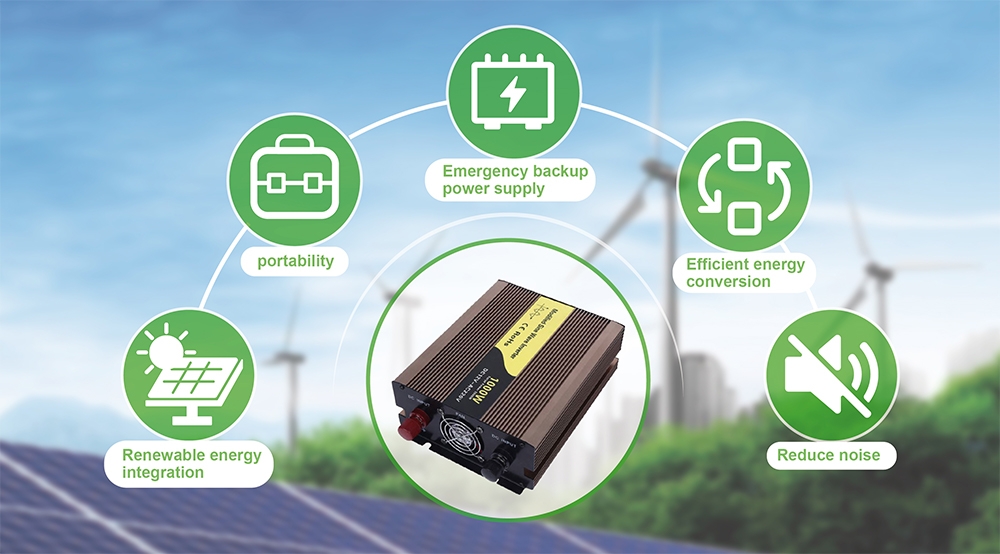In today's fast-paced and technology-driven world, power inverters have become indispensable devices that play a pivotal role in converting direct current (DC) into alternating current (AC). This conversion allows for the utilization of electrical appliances and devices that run on AC power through a DC power source, such as batteries or solar panels. The advantages of power inverters are numerous, ranging from portability to energy efficiency. In this article, we will delve into the various advantages that power inverters offer.

- Versatility and Portability. One of the key advantages of power inverters lies in their versatility and portability. These devices come in various sizes and types, ranging from small, compact inverters for personal use to larger, industrial-grade models. This versatility allows users to choose a power inverter that best suits their specific needs, whether it's for powering electronic gadgets during outdoor activities or ensuring a stable power supply for critical equipment in remote locations. The portability of smaller inverters further enhances their usability, making them ideal for camping, road trips, and emergency situations.
- Emergency Power Backup. In times of power outages or natural disasters, power inverters prove to be invaluable assets. They enable homeowners to continue using essential appliances, such as lights, refrigerators, and communication devices, by drawing power from backup battery systems. This ensures uninterrupted access to electricity, which can be crucial for maintaining communication, preserving perishable items, and ensuring the safety and comfort of occupants during emergencies.
- Renewable Energy Integration. With the growing emphasis on renewable energy sources, power inverters have become essential components in solar and wind energy systems. Solar panels generate DC electricity, which must be converted into AC to be used in homes and businesses. Power inverters facilitate this conversion, enabling the efficient utilization of solar energy for various purposes. Additionally, some advanced inverters offer features like grid-tie functionality, allowing excess energy generated by solar panels to be fed back into the grid, potentially leading to energy savings and even financial benefits through net metering.
- Efficient Energy Conversion. Modern power inverters are designed with advanced technology that ensures high levels of energy efficiency during the conversion process. This efficiency translates to minimal energy wastage, making them environmentally friendly and cost-effective solutions. In comparison to traditional methods of power generation, power inverters contribute to reduced greenhouse gas emissions and lower energy bills, making them an attractive choice for both residential and commercial applications.
- Noise Reduction. Certain appliances and devices, such as refrigerators and air conditioners, can generate noise when running on AC power. Power inverters can help mitigate this issue by providing a smooth and consistent source of power. When these appliances are powered by inverters, the resulting AC output is often cleaner and less prone to fluctuations, leading to quieter operation and improved user experience.
- Remote Power Generation. Power inverters find great utility in remote and off-grid locations where access to a stable power grid is limited or nonexistent. These areas might include remote research stations, construction sites, and rural communities. By harnessing DC power sources, such as batteries or generators, power inverters make it possible to establish functional electrical systems in places that would otherwise be without reliable power.
In conclusion, power inverters have revolutionized the way we access and utilize electrical power. Their versatility, portability, and efficiency make them indispensable tools in various scenarios, from emergency power backup to renewable energy integration. As technology continues to evolve, power inverters are likely to become even more advanced and tailored to specific applications, further expanding their range of advantages and benefits. Whether it's enhancing energy efficiency or providing a lifeline during critical situations, power inverters have undoubtedly become a driving force in shaping our modern electrical landscape.
